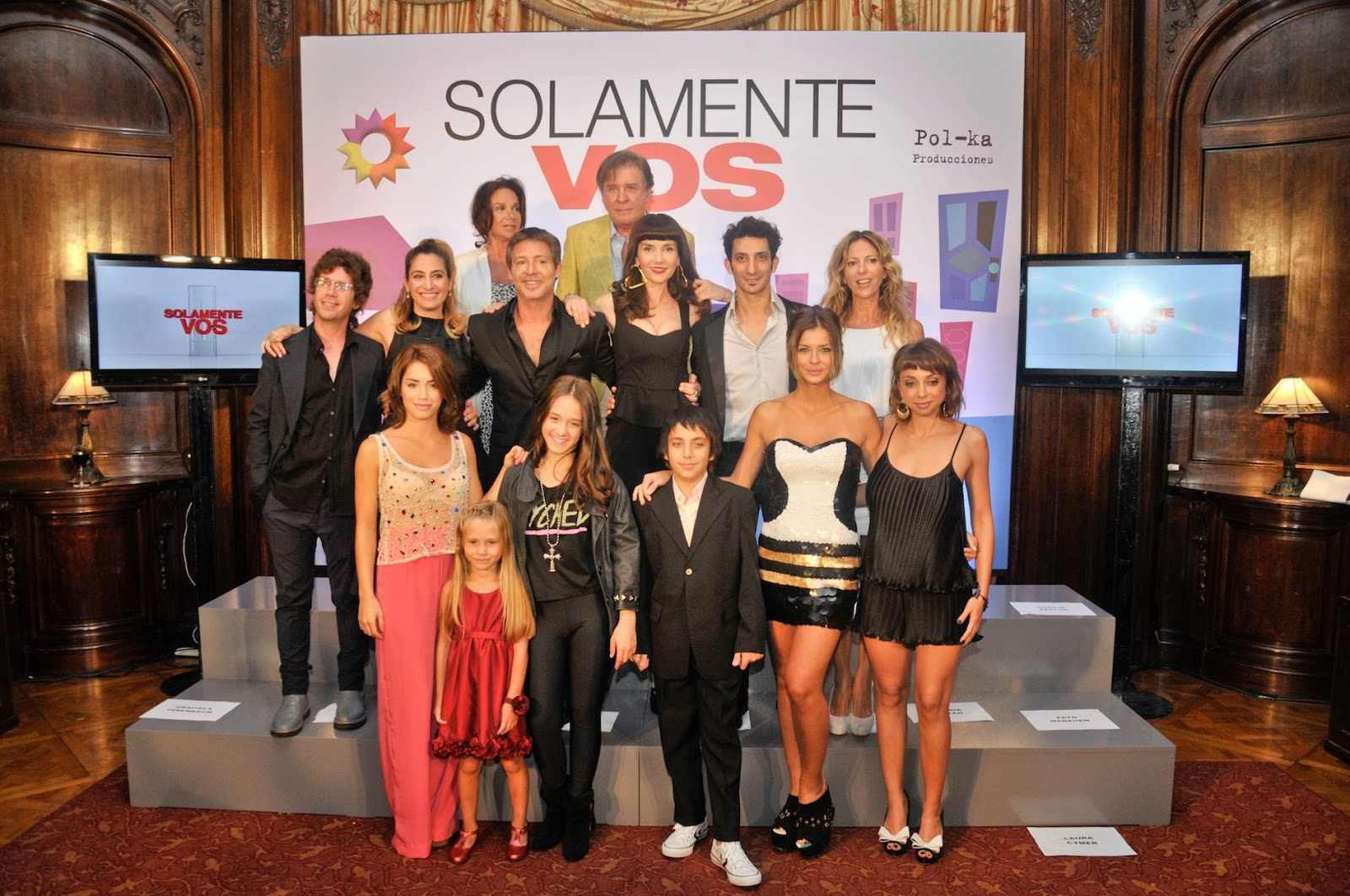Hijo De Natalia Oreiro - Exploring The Word's Meaning
When you hear the phrase "hijo de Natalia Oreiro," it naturally brings to mind a particular connection, a family tie, a relationship between a well-known person and their offspring. It's a simple collection of words, really, yet it carries a good deal of weight and immediate understanding for many people. We often pick up on these sorts of phrases without much thought about the individual parts that make them up, but there's a lot to learn when we pause to consider them. So, in a way, we're going to take a closer look at what the word "hijo" truly means within this common expression.
You know, the word "hijo" itself is a rather common one in the Spanish language, used in countless daily chats and stories. It's one of those basic words that forms a real core part of how people talk about their families and the people close to them. People use it to point out a son, a male child, or sometimes, actually, just a child in general, which is, well, pretty interesting. It's a word that shows up everywhere, from casual greetings to more formal writings, and it always seems to carry a sense of connection.
This little chat is going to help us get a better handle on the different ways "hijo" gets used, especially when it pops up in phrases like "hijo de Natalia Oreiro." We'll explore its common translations, how it changes depending on who you're talking about, and even some of the deeper feelings it can carry. It's like peeling back the layers of a word to see all the little bits that make it so meaningful, which is, you know, quite a nice thing to do.
- Barry Manilow Commercials
- Sebastian Stan Jennifer Morrison
- Ben Hinnt
- George Foremans Childrens Names
- Where Are They Now Americas Got Talent Winners
Table of Contents
- What Does "Hijo" Really Mean?
- "Hijo de Natalia Oreiro" - The Core Idea
- How Do People Use "Hijo" in Daily Life?
- "Hijo de Natalia Oreiro" - Common Ways of Speaking
- Are There Other Words Like "Hijo"?
- "Hijo de Natalia Oreiro" - Similar Expressions
- What Else Can "Hijo" Tell Us?
- "Hijo de Natalia Oreiro" - Different Angles
What Does "Hijo" Really Mean?
So, when you look up the word "hijo" in a Spanish-to-English dictionary, you'll pretty much always find that its main meaning is "son." It points to a male child, a boy who is the offspring of parents. This is, you know, the most direct and common way people understand the word. It's the straightforward way to talk about a male descendant, someone who shares a direct family line with their mother and father. This basic meaning is really important, as it helps us to get the initial sense of phrases where "hijo" shows up.
Yet, it's not always quite so simple, you see. While "hijo" often means "son," it can also, in some situations, mean "child" in a more general way. This is particularly true when you are talking about a group of children that includes both boys and girls. For example, if someone says "mis hijos," they might be referring to all their children, regardless of whether they are sons or daughters. It's a bit like how we might use "kids" in English to mean all our offspring. So, the word has a bit of flexibility in how it can be understood, which is, well, pretty interesting.
There are, actually, a few different ways to translate "hijo" into English, and each one gives it a slightly different feel. "Son" is the primary one, of course, but you might also hear "child" when the gender isn't the main point. Sometimes, too, people might use "sonny" as a term of endearment, especially for a young boy, though that's less common in everyday talk. And then there's "bairn," which is a word for a child, used mostly in certain parts of the United Kingdom, so it's not a common translation you'd come across every day. These different options show just how varied the meaning can be, depending on the exact words around it, and the feelings someone wants to share.
- John Marshall Joan Van Ark
- Caterina Scorsone Pippa
- Fire Rose Birthday
- Lindseys Boyfriend Turner
- Beatrice Taylor Polk County
"Hijo de Natalia Oreiro" - The Core Idea
When we bring "hijo" together with "de Natalia Oreiro," the meaning becomes very clear. It points directly to the son of Natalia Oreiro, her male child. This phrase, you know, leaves little room for doubt about who is being talked about. It's not about a general child or a group of children; it's about her specific male offspring. This is the central idea behind the phrase, the very basic point it wants to get across. It's a way to identify someone by their connection to a well-known parent, which is, really, quite a common way people talk about family relationships.
The phrase "hijo de Natalia Oreiro" uses "hijo" in its most common and direct sense. It's about a biological connection, a familial link. This is where the word "hijo" shines, in a way, as a clear marker of parentage. People often use such phrases to talk about famous individuals and their children, to show that relationship plainly. So, when someone says "hijo de Natalia Oreiro," they are, you know, pretty much stating a fact about a family member, a son of that particular person. It's a very straightforward way of putting things.
The simplicity of "hijo de Natalia Oreiro" is part of its strength. It's a phrase that everyone can quickly grasp. It tells you that the person being discussed is the son of Natalia Oreiro, no questions asked. This directness helps people understand the family ties right away. It's not trying to be fancy or complicated; it's just telling you who someone is related to, which is, honestly, a very useful thing in conversation. This core idea is what makes the phrase so widely understood and used, especially when talking about public figures and their family members.
How Do People Use "Hijo" in Daily Life?
People use "hijo" in their everyday conversations in a good many ways, you know. It's a word that pops up in family chats all the time. For instance, parents will call their sons "hijo" directly, or talk about "mi hijo" to others. It's a very personal way to refer to a male child within the home, a term that carries a lot of warmth and closeness. This kind of use is pretty much universal across Spanish-speaking communities, making it a very familiar sound in family settings. It's just part of how people communicate about their loved ones, which is, you know, quite nice.
Beyond just calling out to a son, "hijo" also helps people tell the difference between male and female children in a family. If you have both sons and daughters, you might say "mis hijos y mis hijas" to be really clear. But, as we talked about, sometimes "mis hijos" can mean all your children, boys and girls together. So, it depends a little on the context, but often, it helps to point out a boy specifically. This is, in a way, a very practical use of the word, helping to keep family members straight when you're talking about them. It's a small word that does a lot of work in making conversations clear.
It's also pretty common for "hijo" to be used as a way to show affection, a term of endearment, even if the person isn't your actual son. You might hear an older person call a younger person "hijo" or "hija" as a sign of care, a bit like saying "dear" or "sweetie" in English. This use shows that the word goes beyond just family ties and can express a warm, protective feeling towards someone younger or someone you care about. So, it's not always about a direct family link; sometimes, it's just about showing kindness, which is, you know, a lovely thing.
"Hijo de Natalia Oreiro" - Common Ways of Speaking
When people talk about "hijo de Natalia Oreiro," they are using "hijo" in a very common and direct way, pretty much how it's used in many family settings. It's a straightforward label that identifies a person by their parentage. This kind of phrase is often heard in news reports, in social conversations, or even just in everyday gossip, you know, when people are discussing public figures. It's a simple, accepted way to refer to a famous person's child, especially a son. It's just how these things are often put into words, which is, well, quite typical.
The phrase "hijo de Natalia Oreiro" serves a purpose in conversation, helping people quickly grasp who is being talked about without needing a long explanation. It's like a shorthand for identifying someone's family connection. You don't have to say "the male child born to Natalia Oreiro"; you just say "hijo de Natalia Oreiro," and everyone gets it. This makes conversations smoother and quicker, which is, honestly, a very practical aspect of language. It's a simple way to share information about family links that are already pretty well known.
It's also worth noting that this phrase, "hijo de Natalia Oreiro," is more on the formal side compared to something like "mijo," which is a much more casual and affectionate way to say "my son." "Hijo" on its own, when used to describe someone like this, tends to be a bit more official, a bit more like stating a fact. So, when you hear "hijo de Natalia Oreiro," it's usually not meant as a term of endearment but as a clear, factual statement about a relationship. It's just how the word works in these sorts of public references, you know, rather than in a cozy family chat.
Are There Other Words Like "Hijo"?
Yes, there are a few words in Spanish that are somewhat like "hijo," though they often carry slightly different feelings or are used in different situations. The most obvious one is "hija," which is the feminine version of "hijo," meaning "daughter." So, if Natalia Oreiro had a daughter, people would say "hija de Natalia Oreiro." This pair, "hijo" and "hija," really shows how Spanish words often change their endings to match the gender of the person or thing they are talking about. It's a very common pattern in the language, which is, you know, pretty neat.
Another word that comes to mind, as we touched on earlier, is "mijo." This is a shortened, more affectionate version of "mi hijo," meaning "my son." People use "mijo" in very warm, familiar settings, often between parents and children, or even by older people to younger ones they care about deeply. It's got a very tender feel to it, a bit like a hug in word form. So, while "hijo" is a straightforward label, "mijo" adds a layer of closeness and love. It's a very sweet way to speak, honestly, and shows a different side of how people talk about their children.
Then there are more general terms for children, like "niño" for a boy or "niña" for a girl, and "niños" for children in general. These words are more about the age group, referring to young people, rather than specifically about their parentage. So, while a "niño" might be someone's "hijo," the words themselves focus on different aspects. "Hijo" is all about the family connection, the fact of being someone's offspring, while "niño" is about being young. It's like having different tools for different jobs, you know, each word doing its own special work in a sentence.
"Hijo de Natalia Oreiro" - Similar Expressions
When we look at "hijo de Natalia Oreiro," it fits into a group of similar phrases that identify people through their parents. You'll often hear "hija de [famous person's name]" for a daughter, or "padre de [famous person's name]" for a father, and "madre de [famous person's name]" for a mother. These are all ways to create a clear link between individuals based on their family relationships. It's a common way, you know, to talk about family trees, especially when one of the people is very well known. It just makes sense to connect them that way.
The structure "X de Y" is a very basic and widely used pattern in Spanish to show possession or origin. So, "hijo de Natalia Oreiro" means the son *of* Natalia Oreiro. This simple "de" (meaning "of" or "from") is, well, pretty powerful in how it creates connections. It's the same structure you'd use for "la casa de mi amigo" (my friend's house) or "el libro de historia" (the history book). It's a fundamental part of how Spanish works, tying one thing or person to another. So, the phrase about Natalia Oreiro's son uses a very standard way of putting things together.
These kinds of phrases, like "hijo de Natalia Oreiro," are often found in official documents, news articles, or formal introductions, because they are clear and to the point. They don't mess around with extra words; they just state the relationship directly. This makes them very effective for conveying factual information about family ties. So, in a way, the phrase is a good example of how language can be very precise when it needs to be, especially when talking about important connections between people. It's just a very clean way to get the message across, you know.
What Else Can "Hijo" Tell Us?
Beyond its basic meaning as "son" or "child," the word "hijo" can also show up in phrases that have a deeper, sometimes even spiritual, meaning. For instance, "Hijo de Dios" means "Son of God." This particular phrase is, you know, very important in religious contexts, especially in Christianity. It shows that "hijo" can be used to describe a unique, sacred relationship, far beyond just a human family link. It gives the word a much larger scope, showing its ability to convey very profound ideas. It's pretty amazing how a simple word can carry such a big meaning.
Then there's the idea of "hijo" in a more general, metaphorical sense. Sometimes, people might refer to someone as the "hijo" of a certain place or time, meaning they are a product of that environment or era. It's like saying someone is a "child of the revolution" or a "son of the soil." In these cases, "hijo" isn't about a direct biological parent, but about being deeply connected to something, being shaped by it. So, the word can go beyond literal family ties to show a strong influence or origin, which is, well, quite clever in a way.
The word "hijo" can also be used in phrases that talk about legal or social situations. For example, "hijo que está bajo la autoridad paterna o tutelar" refers to a child who is still under the care or legal authority of a parent or guardian. This points to the legal aspects of being a child, the rights and responsibilities that come with it. Or, you might hear "el mayor de edad que vive en casa de sus padres," which means an adult child who still lives at home with their parents. These uses show that "hijo" is not just a biological term but also has a place in describing social arrangements and legal standings, which is, you know, pretty important for understanding the full picture.
"Hijo de Natalia Oreiro" - Different Angles
When we consider "hijo de Natalia Oreiro" through these other meanings of "hijo," we can see that while the primary meaning is a direct family link, the word itself has a broader range. The phrase about Natalia Oreiro's son, in its public use, tends to stick to the most straightforward meaning. It's not usually trying to be metaphorical or deeply spiritual. It's just stating a fact about a person's parentage, which is, you know, what most people expect when they hear it. It's pretty much a clear label in this context.
However
- Bear Attack
- Who Was Pete Holmes Married To
- Elsa Real Housewives Of Miami
- Bobby And Jill Zarin
- Dog The Bounty Hunter Tucker

Natalia Oreiro Fotos Hijo | 6k pics

Natalia Oreiro Fotos Hijo | 6k pics

Natalia Oreiro Fotos Hijo | 6k pics